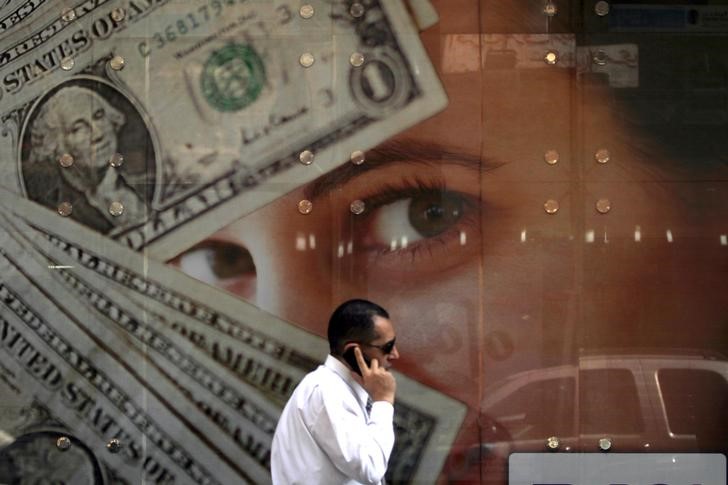Investing.com - The dollar pared back losses against the other major currencies on Thursday after the release of mixed U.S. economic reports; one day after the Federal Reserve said the economy was still not strong enough to withstand higher interest rates.
USD/JPY was last at 122.87 after falling as low as 122.49 earlier.
The U.S. dollar index, which measures the greenback’s strength against a trade-weighted basket of six major currencies, was at 93.95, off the five-week trough of 93.71 set earlier in the day.
Data on Thursday showed that U.S. consumer prices increased at the fastest rate in more than two years in May, climbing 0.4% after a 0.1% gain in April. But economists’ had forecast an increase of 0.5% and inflation was still well below the Fed’s 2% target.
Underlying inflation ticked up 0.1%, slowing from 0.3% in April.
The weaker-than-expected inflation data overshadowed another report showing that initial jobless claims fell by 12,000 to 267,000 last week, pointing to ongoing strengthening in the labor market.
A separate report showed that factory activity in the U.S. mid-Atlantic region expanded at the fastest rate in six months in June.
The Philly Fed manufacturing index rose to 15.2 this month from May's 6.7.
The dollar weakened across the board after Fed Chair Janet Yellen said Wednesday that the central bank wanted to see “more decisive evidence” of sustained growth before raising rates, but acknowledged that the economy has “expanded moderately” after a weak first quarter.
The Fed lowered both its U.S. growth forecast and its interest-rate projections, prompting investors to push back expectations on the timing of an initial rate hike.
The euro remained close to one-month peaks at 1.1406, after hitting day’s highs of 1.1427 immediately following the inflation report.
Sentiment on the single currency remained fragile as a deadlock between Greece and its international lenders continued ahead of the approaching deadline for Greece’s repayments to the International Monetary Fund at the end of the month.
A default by Greece could lead to the country’s exit from the euro zone.
European finance ministers holding talks in Brussels on Thursday, but expectations for a breakthrough were not high.
Sterling cut gains against the dollar, with USD/GBP last at 1.5884 after touching a seven-month peak of 1.5931 earlier.
Data released earlier on Thursday showed that U.K. retail sales rose 0.2% in May, slowing from a revised 0.9% increase in April.
The greenback was at one month lows against the Swiss franc, with USD/CHF down 0.525 to 0.9171.
The Swiss National Bank left its deposit rate on hold at a record low on Thursday and reiterated that it is still prepared to take further action to weaken what it called the “overvalued” franc.
The commodity linked currencies were broadly higher, with USD/CAD down 0.38% to 1.2187 and AUD/USD jumping 1.06% to 0.7833.
The New Zealand dollar remained weaker following the release of weaker-than-expected data on first quarter growth. NZD/USD was down 0.6% at 0.6945 after dropping to five-year lows of 0.6881 overnight.
